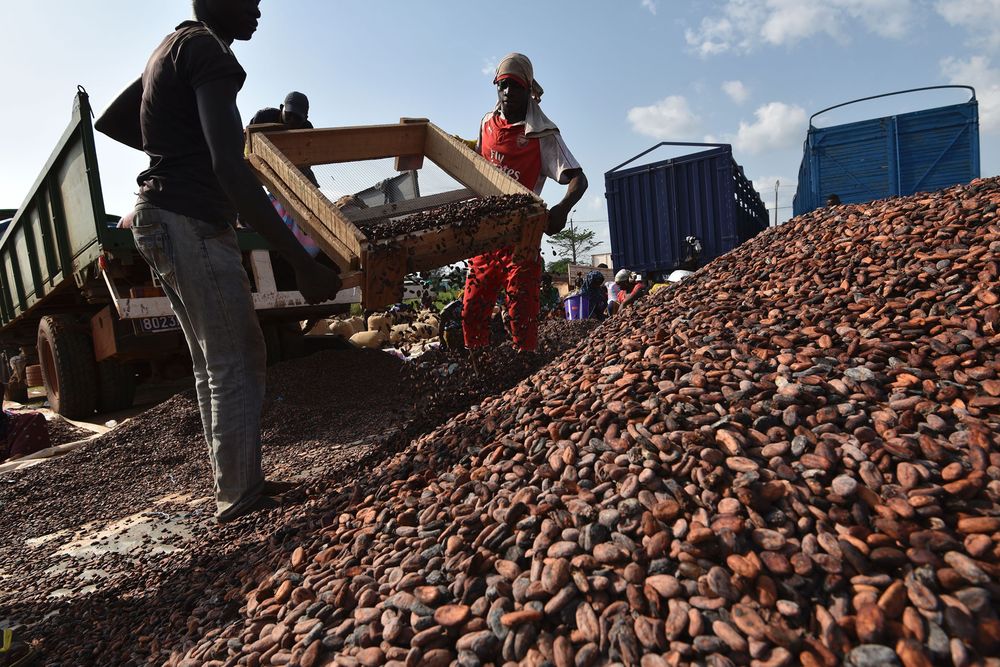
Unwanted cocoa from Cameroon disrupted the latest exchange delivery in London as one trader was forced to split large piles of beans into smaller bags, according to people familiar with the matter.
Swiss company Ecom Agroindustrial Corp. had to break down two piles of 1,000 metric tons of beans from Cameroon for delivery as several traders bought via the exchange, said the people, who asked not to be identified because the information is private. It was the first time that the bulk delivery units had to be split, prompting ICE Futures Europe to delay the delivery announcement by a day and then later revise amounts.
Large amounts of cocoa from Cameroon have plagued the London market recently, as buyers use up surpluses of better quality beans from Ivory Coast and Ghana. That has caused Cameroonian supplies to pile up at the exchange, helping push contracts for earlier delivery to a record discount to later-dated futures. Traders don’t want to buy Cameroonian cocoa because only big processors can use large amounts of it, and most of ICE’s supplies of those beans are in 1,000-ton piles.
In the latest delivery, some traders tried to avoid receiving cocoa from Cameroon by keeping their long positions below a certain level in the hope that they’d get beans of another origin, the people said. That backfired because exchange rules can force the breakdown into smaller bags.
Converting the bulk delivery units can be expensive, costing sellers anywhere between 70 euros to 100 euros ($82 to $117) a ton, according to traders and warehouse keepers. While Paris-based trader Sucres et Denrees SA also delivered cocoa, a bourse algorithm randomly selected Ecom as the one that had to split the bulk units, the people said.
Buyers of the May contract included Cargill Inc., Barry Callebaut AG, Dutch trader Cocoanect and Belgium’s Group Sopex, the people said. Most of the delivery was of Cameroonian beans, with the rest coming from Nigeria, ICE data show. Some arrangements to settle the expiry were made outside the exchange as ICE’s rules have a provision for alternative delivery procedures, according to the people.
The issue has called into question whether the exchange should allow bulk delivery, or a combination of Cameroon cocoa and bulk units, the traders said. The exchange will probably address the issue next time its cocoa advisory committee meets, the people said.
ICE continuously evaluates contract terms and procedures, including holding open dialogue with market participants, ICE Futures Europe President Stuart Williams said. The last delivery took place in line with exchange rules, he said, adding that it could look into possible changes based on industry feedback.
